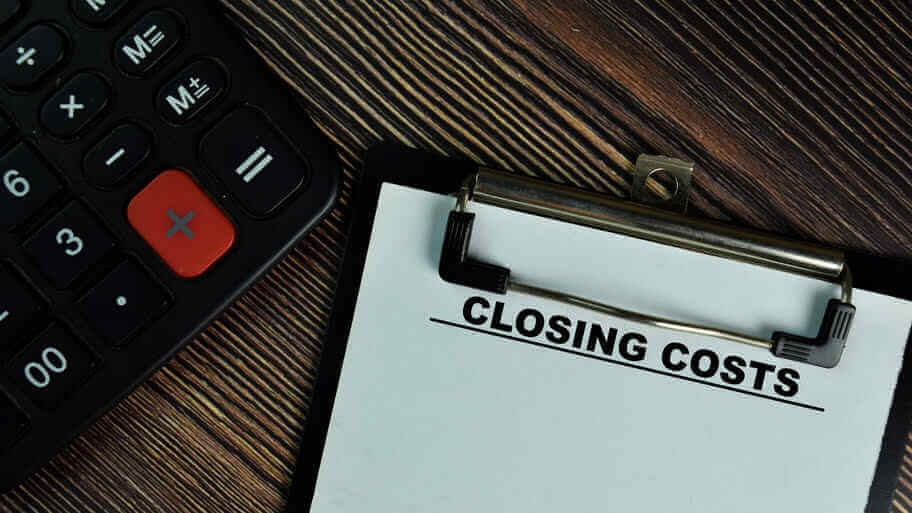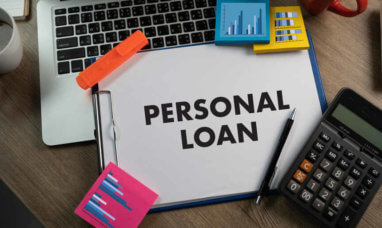Buying a home may thrill you, but you don’t want expenses other than those you had budgeted for catching you off guard.
It’s better to know in advance what’s coming and the costs you should expect, so you can prepare yourself mentally and financially. This is especially true when taking a mortgage to purchase a home.
Closing costs are such expenses. The fact that there’s no fixed amount makes it difficult to pin down how much you’ll pay.
While most sites estimate them to be 2% – 5% of the total home value, the figure might be huge if the home is expensive. Additionally, the costs are a sum of several expenses.
Some depend on your lender, the state where the home is located, the type of mortgage, and even the real estate agents you’re dealing with.
A closing costs calculator is a handy tool to help you estimate your closing costs. It can help keep them from being a surprise, allowing you to plan for the expense and ensure that they don’t put too much pressure on your budget.
How Much Are Closing Costs?
Your closing costs are the expenses associated with your purchase of a home. These are paid at or around closing, which is the time when you finalize your purchase and ownership of a home.
These costs include taxes and titling fees to appraisal charges, inspection charges, and lender’s title insurance.
What Are the Closing Costs on a $300,000 House?
On a $300,000 house, the closing costs can range from $4000 to $15,000+ depending on the area and state you live in. The real estate taxes and homeowner’s insurance can be a significant portion of your total closing costs.
For example, in the state of New York, those two items can be as high as $4000. This is a significant amount since it’s half your closing costs and about a quarter of the purchase price itself.
How Do You Calculate Closing Costs on the House?
Calculating what your closing will cost is difficult. Costs depend on where you live and what kind of deal you strike with the seller.
Typically, expect direct charges for things like appraisal fees or inspection services. They’re not usually rolled into your financing package as part of interest payments.
Some lenders include these expenses in their loan origination fee, while others make separate arrangements with buyers.
How Much Are Closing Costs on the House?
On average, buyers pay around 2% of the purchase price to close.
For example, if you’re buying a home for $300,000, your total closing costs will likely be about $6,000.
Actual expenses may vary depending on how many loans or lines of credit you have and which ones they are.
You’ll also have some direct expenses that aren’t tied to interest payments. It’s hard to know what your final bill is until the transaction is over.
What Goes Into Closing Costs?
Closing costs are fees associated with buying a home.
The costs can vary from state to state and lender to lender. Therefore, get a reasonable estimate before you begin your search for a new home.
Some common closing costs include:
-
-
- Appraisal fees are paid to the appraiser who values your property.
- Inspection fees are paid to a professional inspector. They inspect the house for any issues.
- Title fees are paid to your state or county to ensure the seller has a clear title and can legally sell you the property.
- Attorney’s fees are an agreed-upon amount split between buyer and seller. It covers any legal documentation needed, such as deeds and contracts.
- Title insurance protects you against losses if the title search reveals a problem with previous ownership.
- Application fees are sometimes charged by lenders as a one-time processing fee.
-
No-Closing-Cost Mortgages
With a no closing cost mortgage, you get an interest rate reduction or lower down payment requirements if you pay certain non-refundable fees at the time of closing.
No-closing-cost mortgages are attractive to some home buyers because they can offer a more affordable monthly payment.
However, you should be aware that the lender may raise your interest rate later if rates go up or if your credit score downgrades during the mortgage approval process. This leaves you stuck with a longer and more expensive loan.
Seller-Paid Closing Costs
With seller-paid closing cost mortgages, you negotiate with your lender to have the buyer pay all of their closing fees. This will sum up some or most of what they are already paying in interest.
Seller-paid closing costs aren’t available on conventional loans. Confirm with a mortgage broker before assuming this benefit’s value.
What Are Prepaids in Closing Costs?
Prepaids are loan estimate prepaid fees that will be subtracted from your loan balance. You don’t have to worry about paying them at a later date or being charged interest on them while they’re outstanding.
Prepaids in closing costs include loan costs such as insurance and taxes that the borrower pays in advance of closing.
They’re normally due within 30 days after closing. However, lenders can set different deadlines. Check with your loan officer before making any financial decisions.
Some common prepaid items are:
-
-
- Monthly mortgage insurance premiums
- Property taxes
- Hazard insurance
- Flood or earthquake insurance
- Homeowners’ association dues
- Loan assumption fees
- Initial loan costs
-
Can You Roll Over Closing Costs Into a Mortgage?
Yes, loan costs can be rolled over into the loan amount if you obtain a no-closing-cost mortgage or pay all closing costs upfront.
However, this is not an option for conventional loans. Ask your loan officer before making any decisions or signing documents.
A Closing Costs Calculator Can Help
The closing costs to buy a home can be significant.
Understand all the potential fees before making any final decisions about loan options.
When deciding on loan types, think carefully about whether or not you want the loan company to pay for certain things. These include monthly mortgage insurance premiums and property taxes.
Inquire about an option for no-closing cost mortgages with seller-paid closing costs, so you can avoid paying out of pocket at the closing time.
Featured Image: Megapixl








